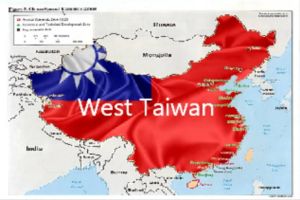Geopolitics
Information from The State of Sarkhan Official Records
First rule of Geopolitics : There are no permanent friends and foes, only permanent interests
Geopolitics is crucially important for a country's development for several reasons:
Trade and Access to Resources:
- Landlocked vs. Coastal Nations: A country's access to the sea significantly impacts its trade potential. Coastal nations have a natural advantage in terms of cheaper and faster transportation of goods through maritime routes. This allows them to participate more actively in global trade, leading to economic growth and development. Landlocked countries, on the other hand, face higher transportation costs and logistical hurdles, hindering their ability to compete in the global market.
- Double Landlocked: As your example points out, being doubly landlocked presents even greater challenges. A country surrounded by landlocked countries faces compounded transportation issues and limited access to ports. This significantly restricts trade opportunities and economic development. Examples of doubly landlocked countries include:
- Central African Republic
- Chad
- South Sudan
Regional Stability and Investment:
- Political Alliances and Conflicts: A country's geopolitical landscape can significantly impact its ability to attract foreign investment and secure resources. Stable regions with strong political alliances tend to be more attractive to investors, fostering economic development. Conversely, countries embroiled in regional conflicts or political instability often face difficulties attracting investment and may even lose existing partnerships. Current Examples:
- The ongoing war in Ukraine has disrupted global supply chains and caused economic instability in the region.
- Tensions in the South China Sea between China and its neighboring countries create uncertainty for businesses considering investments in the region.
Access to Infrastructure and Trade Routes:
- Regional Cooperation: Geopolitical alliances can influence a country's access to critical infrastructure projects and trade routes. Friendly relations with neighboring countries can lead to collaboration on building roads, railways, and pipelines that facilitate trade and movement of goods. Conversely, strained relations might hinder a country's ability to participate in regional infrastructure projects, limiting its development potential.
Examples of Current Geopolitical Conflicts:
- The Russia-Ukraine War: This ongoing conflict has had a global impact, disrupting energy supplies, causing food shortages, and impacting global financial markets.
- The Taiwan Strait Tensions: The potential for conflict between China and Taiwan raises concerns about disruptions to global supply chains and economic instability in the region.
- The Korean Peninsula: The ongoing tensions between North and South Korea pose a threat to regional security and hinder economic development in the North.
By understanding these factors, countries can develop strategies to navigate the complexities of geopolitics and leverage their position to achieve economic development and prosperity.
